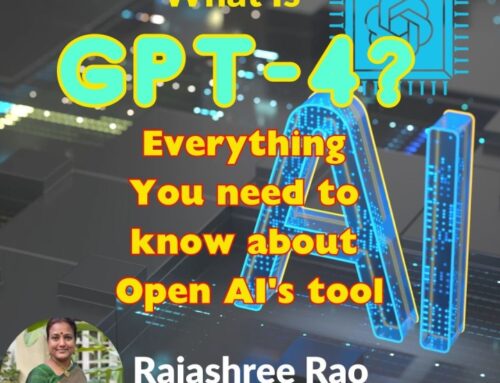Blockchain technology is called the next stage of the Internet. The blockchain is a global, decentralised online database or distributed ledger that provides a way to record and transfer data that are transparent, safe, auditable, and resistant to outages, that anyone with an internet connection from anywhere in the world can use. Blockchain can make the organisations that use it open, democratic, decentralised, efficient, and secure.
The blockchain has social perceptions strongly related to bitcoin and other cryptocurrencies. Most people view blockchain as something intellectual for tech-savvy cyber criminals for anonymous black-market transactions or people who are anti-government, against the centralisation of financial regulative authorities. The emerging reality is that blockchain has applications that are far beyond cryptos, and as a whole will nothing be short of a revolutionary.
The current internet is the ‘Internet of Information.’ It is based on the concept of copying and distributing information, be it email, video, or data – all these are copies. For eg., If you want to watch a video on YouTube, or read an email, you are looking at the digital copy of the original. What if we take this further to the next stage, what about assets that provide real value – such as contracts of the house or car ownership, stock or bonds. money, votes or digital identities like Passport,
The problem is we do not want to have these as copies. For eg., When you send someone $10,000 and yet still have the original $10,000 under your name, is called the ‘Double Spending’ problem by the cryptographist. Despite the name, this double-spending means the problem of having two digital copies of something that should have a one-unique identity. The cryptography element of the blockchain is the first-of-its-kind technology to solve the double spending problem. For the first time, we can build the new stage of internet based on real values enabling unique identities, and this is why it is a big deal. SO, where can the blockchain technology be applied?
According to Dr.Adrian Mccullagh, IT Lawyer in cutting-edge and blockchain says, “The best place to use blockchain technology is the industries or businesses with high possibilities of Fraud, Intermediaries (Middle-men), Throughput (High volume of Transactions), and Stable Data (FITS).”
- Fraud: Significant reason why blockchain technology is used in the International Financial Transactions where the environment or system is fraudulent.
- Intermediaries or Middle-men: Disintermediate of the intermediaries for the significant reduction in the settlement time.
- Throughput: The industry is developing a platform using blockchain which can do 400,000 transactions per second through decentralised or distributed computing using a hundred PCs to do the processing.
- Stable Data: For blockchain application, it requires stability of data and not volatile data like land or car ownership or personal information, like the Social Security or Passport Number.
The Blockchain technology, although has a wide range of potential applications and is likely to disrupt many industries in the next 5 to 10 years the technology, however, has powered the Banking Industry and is gaining steam among the Financial firms given its potential to increase efficiency and streamline processes, because it has the ability to allow multiple parties to transfer and store sensitive data in an environment that is anonymous, permanent, secure, and easily accessible. This system simplifies the expensive, paper-heavy, or logistically complicated financial operations such as cross-border transfer, remittances, shareholder management, securities trading, and ownership exchange to name a few.
IBM is one of the pioneers in unveiling its “Blockchain as a Service” offering which is based on the open source Hyperledger Fabrice, v1.0 from the Linux Foundation. Linux Foundation Hyperleder is a collaborative effort created to advance cross-industry blockchain technologies for businesses. It is a global collaboration hosted by ‘The Linux Foundation,’ including leaders in Banking, Finance, Internet of Things, Manufacturing, Supply Chains, and Technology. Hyperledger was launched in 2016 with a technical and organizational governance structure and with thirty founding corporate members. The Hyperledger Technical Steering Committee welcomed two business blockchain framework codebases into incubation:
1. Hyperledger Fabric: Is a blockchain providing an implementation of a ledger, smart contracts, privacy and consensus.
2. Hyperledger Composer: Is a Suite of tools that make it easy to develop blockchain applications.
IBM Blockchain is a public cloud service that customers can use to build secure blockchain networks. Even though the blockchain is based on the open source Hyperledger Fabric project which IBM is a participating member, IBM has added a set of security services to make it more robust and secure for its enterprise customers, while offering it as a cloud service helps simplify a complex set of technologies, making it more accessible than trying to do this alone in a private datacenter. IBM is committed to supporting the development of openly-governed blockchains.
IBM is working with more than 400 plus clients across financial services, supply chains, IoT, risk management, digital rights management and healthcare to implement blockchain applications. IBM wins the race to build a new blockchain-based Internation trading system for a consortium of global banks, a significant win in selling the blockchain to the Wall Street. Seven of its major partners Deutsche Bank, HSBC, KBC, Natixis, Rabobank, Societe Generale and Unicredit is building together a “Digital Trade Chain (DTC),” a blockchain based trade finance platform. IBM’s blockchain platform will run through the IBM Cloud, allowing for interconnectivity between all parties in a particular secure transaction.
Similarly, there are multiple consortiums emerging today like R3 which is an enterprise software firm working with over 100 banks, financial institutions, regulators, trade associations, professional services firms and technology companies to develop Corda, our distributed ledger platform designed specifically for financial services. Bank of America (BOA) announced its partnership with consortium start-up R3 to work on a pilot in the trade finance space as the trade finance often relies upon paper-based or manual processes. BOA believes that this pilot will serve an interesting use-case of digitising an asset on a distributed ledger. BOA is joined by Standard Chartered and Development Bank of Singapore (DBS) as major banks who are keen on applying blockchain technology for use in ‘Trade Finance.’ Both Standard Chartered and DBS are working on a Ripple based solution which they aim to commercialize following successful PoC and testing.
Blockchain Powering the Future – Six of the world’s largest banks, Barclays, CIBC, Credit Suisse, HSBC, MUFG, and State Street, have announced backing of the UBS and Clearmatics, spearheaded Utility Settlement Coin, joining other industry heavyweights who have pledged their support for the project, including BNY Mellon, Deutsche Bank, and Santander.
The Nasdaq and Citi announced Pioneering Blockchain and Global Banking Integration. The Nasdaq stock-exchange will soon begin a blockchain system to record the trading of privately held companies. Bank of England (BOE) aims to save tens of billions by using blockchain technology for settlements. BoE stated that blockchain is a significant innovation that could have far-reaching implications in the Finance Industry. Bank of England trials artificial intelligence and blockchain in the bid to stay ahead of the pack.
The industry is not just thinking about the ‘Blockchain Technology’ as a method to change their existing operations or to promote efficiencies. It is also a way of bringing an entirely new creative revenue stream by disrupting the conventional mode of performing the business operations.
To summarize, I still believe that the blockchain technology would work wonders if it is regulated and follows the Industry standards and methodologies. In this scenario, the Financial Services Industry should develop its industry-specific blockchain which is authorized and approved by the industry bodies globally with well-defined FSI related Standards, Policies, Legal and Regulatory Frameworks. Only then will the ‘Blockchain Platform’ for FSI will create a ‘Secured and Trusted’ Industry specific ‘Shared Network. This industry-specific blockchain technology solution will eliminate so many companies and consortium developing their independent blockchain platforms.
Note: Please refer to my article on Blockchain Choking Hazard highlighting the challenges and impact it will have here.




